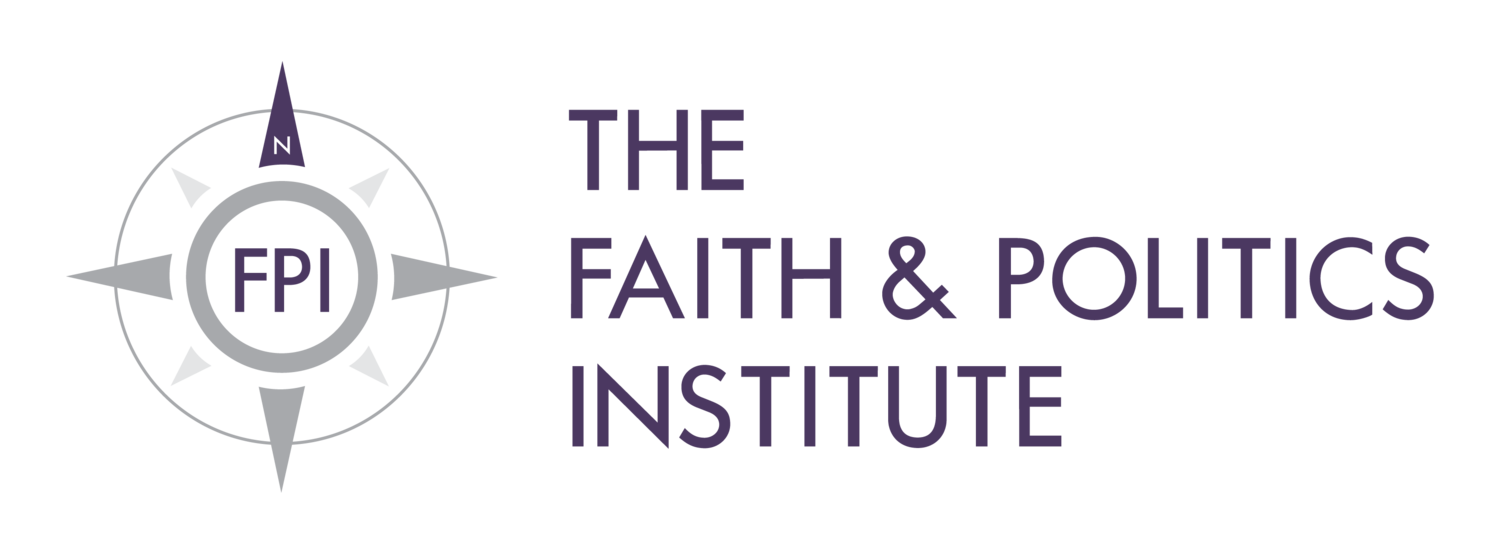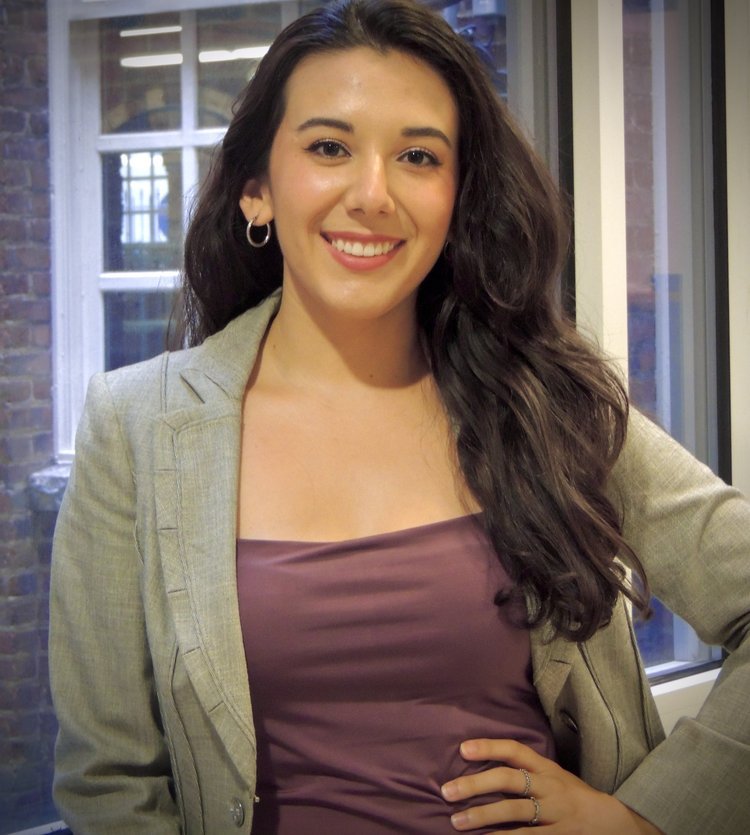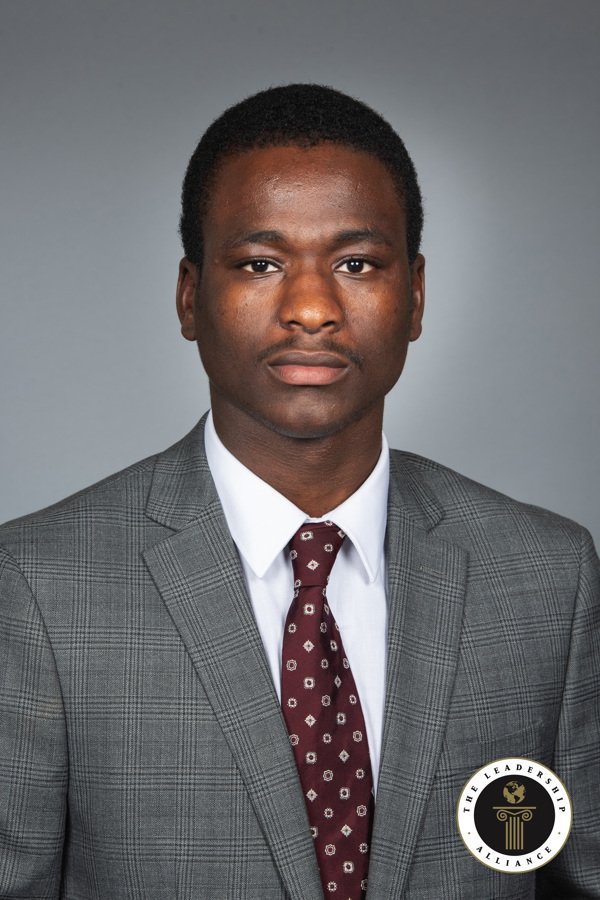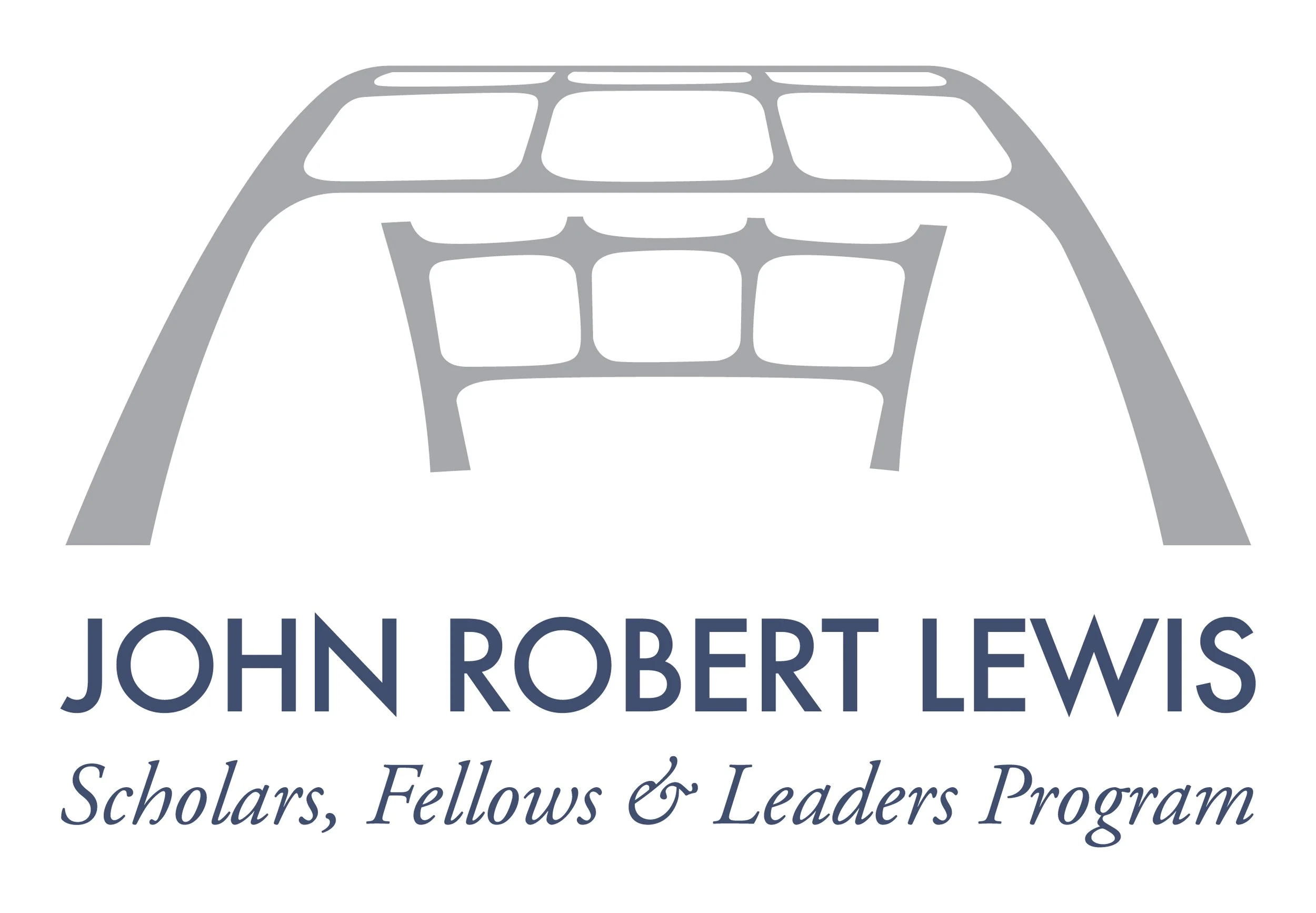Cohort Three Oral History Projects
(2023 - 2024)
A Discussion with Bob Zellner and Pamela Smith Zellner
by John Robert Lewis fellow tawreak gamble-eddington
My oral history project focuses on the lives of Pamela Smith Zellner and Bob Zellner in the Civil Rights Movement and nonviolent advocacy. The central focus of the project, as well as the line of questioning outlined below, is to understand the experiences of these two not only as individuals but as a couple. Additionally, for Bob Zellner, we aim to explore how and why they chose acceptance and/or nonviolence.
An Interview with Attorney General Keith Ellison
By john robert lewis scholar Abdulaziz Mohamed
Attorney General Keith Ellison, a pivotal figure in the nation’s legal and political landscape, traces his deep-rooted commitment to justice back to his upbringing amidst the civil rights movement. Born into a family with a legacy of service, he has dedicated his career to protecting the freedoms and rights of all people. From his days as an organizer and defense attorney to becoming the first Muslim American elected to Congress in the United States and subsequently the first African American and Muslim American elected to statewide office in Minnesota, Ellison embodies a lifelong commitment to equity and the Beloved Community. This oral history project explores his early influences, student and legal leadership, friendship with John Lewis, and reflections on Minnesota’s civil rights history.
Sociolinguistic Interview Critique: How does a 75-year old Black man view the N-word in 2024 versus how he viewed it as a youth?
By john robert lewis scholar alton coston iii
The n-word is one of the most polarizing words among humanity. Given the word’s historical usage within and against the African-American community, it holds meaning that some Black Americans consider offensive whereas others use it in today's society as a means of cultural reclamation. My sociolinguistic oral history project focuses on how my 75-year old grandfather, Charles Jerome Wynn, views the n-word in 2024 in comparison to his years of youth as a burgeoning politically-conscious student at Elizabeth City State University in North Carolina marching in the Civil Rights Movement.
Nowhere to Turn: Exploring Migrant Humanitarian Protection at the U.S.-Mexico Border
By john robert lewis scholar ignacio gutierrez
This project centers on Martin Ames Salgado, who runs Casa del Migrante, a migrant shelter in San Luis Río Colorado, Sonora—a Mexican border town divided by a 30-foot steel wall and patrolled heavily by US Border enforcement. Through an interview with Martin, I aim to depict the harsh realities faced by asylum seekers and recent deportees stuck in limbo at the border. These individuals are caught between the policies of two nations, living in a state of uncertainty and danger. Martin's insights will help us understand the daily struggles these migrants face and the critical role shelters like Casa del Migrante play in offering refuge and hope.
The Leeward Turned Flourished Side of Dartmouth College: History of Student Activism & May Day
By john robert lewis scholar JACKELINNE CLAROS BENITEZ
As a student activist, I wanted to center my project on the student intifada, specifically at Dartmouth, and recent occurrences that have affected hundreds of us—whether Dartmouth students or the ubiquitous student body. As a result, I decided to interview Professor Orleck, a professor who stood in front of danger (riot police in gear, including rifles and batons) to protect her students and stand for Palestinian liberation. Although I, unfortunately, did not have the chance to take a class of hers, close friends have always spoken highly of her. From witnessing her arrest to her journey to being solidified as a legend through her media attention and bravery, I knew I had to contact her for an interview. I knew she had the revolutionary spirit that John Lewis had all those decades.
An Interview with Olufela (Olu) K. Orange Esq.
By john robert lewis scholar katherine owojori
A tenet of Lewis’ philosophy is the notion that “we all have roles to play”. A topic of debate among social justice advocates, centers around identifying the most effective means for social change. My objective for this oral history project is two-fold: firstly–to honor and examine the legacy of Olufela (Olu) K. Orange Esq., a precedent-setting civil rights attorney, and to explore the question of whether it is possible to advocate for the rights of marginalized peoples in a system designed to prevent such pursuits, and in other words: how to create justice in systems where there may be none.
The Heroes of Hurricane Katrina
By john robert lewis scholar luz escobar zapata
In the Fall of 2021, I read The Undocumented Americans by Karla Cornejo Villavicencio, which opened my eyes to the United States’ most forgotten heroes—workers who rebuild after natural disasters. She briefly mentioned Hurricane Katrina, and I realized I had never heard this story before. Determined to tell the stories of the heroes who helped rebuild the city, I wanted to empower their narratives. These leaders are at the forefront of environmental justice, fighting for BIPOC families near chemical plants, lacking clean water, and displaced by violence. This inspired me to interview my parents, Steven Mathews from Chicago and my mom, Indira Mathews, a Nicaraguan immigrant, both of whom helped rebuild New Orleans. Through these interviews, I uncovered the intersection of race, ethnicity, and class during Hurricane Katrina, discovering my parents' heroism not just to me, but to the city of New Orleans.
An Interview with Roxanne Chang
By john robert lewis scholar Nelson lin
For my oral history project, I will interview Roxanne Chang, a core member of Gongming Collective, a collective of Chinese interpreters based in New York City whose work centers around language justice. New York City contains the largest Chinese diaspora of any city in the United States; here, struggles for equity amongst immigrant communities are front and center. Language justice is loosely defined as “the right everyone has to communicate in the language in which we feel most comfortable”. Amid struggles in contemporary Chinatowns against gentrification, Gongming Collective’s work has supported the advocacy of monolingual immigrant communities through bridging language barriers within our English-centric society. I will interview Chang about her initial work with Gongming Collective, their current initiatives, and her perspectives as an interpreter and translator fighting towards language justice.
An Interview with Elmore Bryant
By john robert lewis scholar Rodney wells
My oral history project will delve into the intertwined histories of Marianna, Florida, focusing on the 1934 lynching of Claude Neal and the impactful life of Elmore Bryant, the city's first black mayor. This project aims to explore the legacy of racial violence and its long-lasting effects on the community, tracing how the brutality of Neal's lynching influenced the social and political climate in Marianna for decades. Through the lens of Bryant's experiences and activism, the project will highlight the evolution of civil rights efforts in the area, showcasing his role in challenging segregation, promoting equality, and reshaping the town's governance.
An Interview with Anna Del Castillo
By john robert lewis fellow Alejandra salemi
Anna Del Castillo is one of my dear friends and soul sisters who I met during my time at Harvard Divinity School. She has been one of my greatest teachers in living a life and vocational calling that aligns with my values. I have watched her navigate through these very questions in her early career and I wanted to highlight her story. She was recently hired for the Biden administration where she was Deputy Director of Diversity, Equity, Inclusion and Accessibility (DEIA) at the White House. As she began her tenure there, the events of October 7th unfolded and she was once again left having to make difficult decisions about her career and her morals.
An Interview with Vincent Wu
By john robert lewis fellow Annie li
I will interview Vincent Wu, a Chinese American who participated in the Selma to Montgomery marches in 1965. Wu immigrated from China to New York City. While a graduate student at the University of Illinois, he responded to a call to join the Southern Christian Leadership Conference at Selma. Wu went to the South on two other occasions for voting rights work, in Greene County, Alabama, in 1966 and Jackson, Mississippi, in 1968. I will interview him about his upbringing, experiences in the Movement, and reflections on his racial, religious, and political consciousness. This interview, while conducted for the JRL oral history assignment, is part of my larger project on Chinese Americans in the Civil Rights and Asian American Movements of the twentieth century.
Pathways to Movement Lawyering
By john robert lewis fellow Arianna chen
Between the perfect plaintiff dilemma, structures which uplift figures responsible for decisions like SFFA and Daubert, and continual access gap to the law by communities most marginalized by its misusage, modern day movements are reconciling what the role of lawyers are in furthering justice. In my project, I interview talented lawyers who have dedicated their careers to community-building and social justice, in order to learn more about their professional journeys and how that may inform thematic priorities for today’s budding generation of lawyers.
An Interview with Joy Han
By john robert lewis fellow grace han
The oral history project I am pursuing is born out of a personal passion project of mine: archiving my family’s history in America. As my parents immigrated to the States throughout the 80s and 90s, most if not all of our family records were left behind. I see this project as a first step, an opportunity to begin building this out now. I will be sitting for an interview with my mother, Joy Han, who recently became a U.S. citizen this year. I would like to engage with her on her story of immigrating to the States in the 90s, living and working here the past thirty years, and then deciding to commit to the months-long naturalization process in time to vote in this election year. I see my mother as not only a changemaker in my family but also a reaffirming example of what a person can do to help safeguard our democracy.
Following the Footsteps of Giants: Interview with Dr. Robert Higgins
By john robert lewis fellow ibraheem hamzat
Since childhood, I have always imagined that I would become a cardiac surgeon. I would look up everything I could about the career, ranging from the anatomy of the heart to the lives of the surgeons themselves. It was within this context that I first learned about Dr. Robert Higgins when I was in high school. My presentation seeks to give a detailed overview of the life, challenges, and achievements of my mentor, Dr. Higgins. He is a man who has played a crucial role in the careers of many cardiothoracic surgeons and in the lives of thousands of patients and their families. This project aims to serve as a living tribute to his contributions and to inspire future generations of cardiac surgeons on their journey toward achieving health equity.
Interviews with Garrison Tahmahkera, Eula Dean, and Dr. Gloria Montiel
By john robert lewis fellow ivan quintana
My oral history project will focus on the impact that civil rights has had on the educational journeys of three resilient and talented individuals from different backgrounds that have become changemakers in their communities. At the forefront of this project I wanted to ensure that I did not just focus on the “Hispanic perspective” and also focus on one of the project guidelines which is “to preserve important stories that future generations must know about.” At first, I wanted to focus on civil rights stories in Arizona, but through my network realized that many of the people that were referred to me did not originate from Arizona. That is when it hit me that I am not the arbiter of what “good” stories are, but rather an instrument for the preservation of them.
Interviews with Juan Puac and Hilaria Perez
By john robert lewis fellow jennifer puac
This oral history project is dedicated to the lives of Juan Puac and Hilaria Perez who both survived the political times of Guatemala during the 80s and migrated to the United States during the early 90’s. Both were born in a small agrarian town called Totonicapan, Guatemala in the late 60s and early 70s. Both discuss what it was like growing up in Guatemala, what the genocide was like for their indigenous population, and what the pressures (i.e., mental health) were for them when they arrived in the United States.
Berkeley as a Place of Resistance: An Oral History of the Palestine Liberation Camp from a Student’s Perspective
By john robert lewis fellow Katie wysong
The University of California, Berkeley has long been a site of resistance and protest from the birth of the Free Speech Movement to development of the Disability Rights Movement. This history has attracted many students to the school. One of the most recent examples was the Palestine Liberation Encampment at the end of spring 2024 as part of larger protests on campus against the War in Gaza. Within my Jewish community, there has been lots of misinformation and demonization of campus protests, including at Berkeley. For my oral history, I chose to talk to one of my close friends from my graduate program about her involvement in the protests and how faith has been a defining factor in organizing.
Civil Rights and the Black Studies Movement
By john robert lewis fellow rev. terrance l. thomas
The Civil Rights Movements of the 1950s-60s had a profound impact on the lives of Black Americans specific and the American social order in general. One of the ways this movement shifted this lived reality was through education, in particular the push for an education that sought to empower and ultimate liberate millions of Black Americans and bring into community countless others. One of the ways this push took place was the creation of the discipline of Black Studies.
George A. Smith, Founder, National Society of Black Engineers
By john robert lewis leader osyria webster
This project dives into the origins of the National Society of Black Engineers (NSBE) through a firsthand account. The centerpiece is a heartfelt interview with George Antoine Smith, a founding member of NSBE. As a fellow Lifetime NSBE member, I have a unique opportunity to explore Mr. Smith's perspective on the organization's inception. I'll explore Mr. Smith's experiences and motivations behind creating this crucial organization. Through his voice, I'll gain insight into the challenges faced by Black engineers and how NSBE has empowered future generations.
The Buffalo Soldiers: An Interview with Floyd Gray
By john robert lewis leader cedric smith
Throughout American history while experiencing racial discrimination and disparity, the so-called Negro, Colored, Black American, African American, American Descendant of Slavery, have fought in every United States war, conflict, and military operation with little to no reward or acceptance into full citizenship. Patriotism ran and still runs deep within my people. These are just a few reasons why I chose to do an oral history report on the Buffalo Soldiers. Specifically, the Greater Southern Arizona Area, Chapter of The National 9th and 10th (Horse) Calvary Association. The Tucson Buffalo Soldier Memorial/Plaza, which was completed late April 2021, is in the famous Quincie Douglas Neighborhood Center in Tucson, Arizona.
Voices of Change: The Life and Legacy of Ms. Gwendolyn Reed
By john robert lewis leader josh peters
The purpose of this oral history project is to capture and preserve the experiences and contributions of Ms. Gwendolyn Reed from St. Louis, Missouri. Through a video interview, we aim to document her journey from growing up during the Civil Rights Movement to becoming a trailblazing educator and a key figure in local political history. The video interview explores the following key aspects of Ms. Reed's life and career: Early Life and Influences, Civil Rights Involvement, Pioneering Educator, Political Career, Legacy and Reflections.
Amplifying Asian American Voices: An interview with Stephanie Drenka, Founder of the Dallas Asian American Historical Society
By john robert lewis leader veronica mak
Despite a rich history dating back to the 18th century, Asian Americans seem to vanish from national narratives. Civil rights heroes like Yuri Kochiyama and Larry Itliong personify how our contributions remain largely ignored. This invisibility is worsened by stereotypes like the "model minority" and "perpetual foreigner" myths – which erase our struggles and suggest we will never truly belong. Further, the pervasive exoticism and fetishization of Asian women fuels violence and normalizes discrimination against our community. My oral history project highlights a current changemaker in this space – Stephanie Drenka, co-founder of the Dallas Asian American Historical Society. Together, we explore her journey of being adopted from South Korea into a “very white” family to becoming a prominent activist combating anti-Asian hate.
An Interview with Denise Jackson Ford
By john robert lewis leader marcus washington
For my Oral History project, I have interviewed Denise Jackson Ford, my aunt and a lifelong resident of Natchez, Mississippi. Denise is the daughter of the late American civil rights activist Wharlest Jackson, Sr at the time of his death in 1967, Wharlest Jackson was a 36-year-old Korean War veteran, husband, and father of five. Jackson served as the treasurer of the local Natchez, Mississippi chapter of the NAACP branch. He also worked at a manufacturing factory, the Armstrong Rubber and Tire Company in Natchez. In recognition of his hard and consistent work, management of the company had recently promoted Jackson, over two white applicants, to a new position — one that had never previously been held by a Black employee. Tragically, Jackson was murdered by a car bomb, with evidence of involvement by a white supremacy organization. This crime has been an unsolved murder since the 1960s.
An Interview with Chidinma Ume
By john robert lewis leader Kevin miller
Chidinma Ume is the Senior Director of Community Justice for the Center for Justice Innovation and leads CJI’s west coast operations in Los Angeles, CA. This oral history interview explores how Chidinma’s family, community, and personal experiences as a self-identified Nigerian-American have shaped her career and contributions to the field of the criminal justice reform with a particular emphasis on her work on restorative justice.
Black Portland: Historical Exclusion and Displacement
By john robert lewis leader donovan bonner
When I mention that I live in Portland, I'm often met with the question, "Do Black people really live there?" The demographics of Portland and greater Oregon often raise curiosity about the scarcity of Black residents. To comprehend this issue today, it's essential to delve into Oregon's history. This Oral History Project consists of a series of interviews aimed at illuminating the context behind exclusionary laws and discriminatory practices that have deeply shaped Oregon's history. Ultimately, it seeks to answer the question: Why are there so few Black people in Oregon?


























